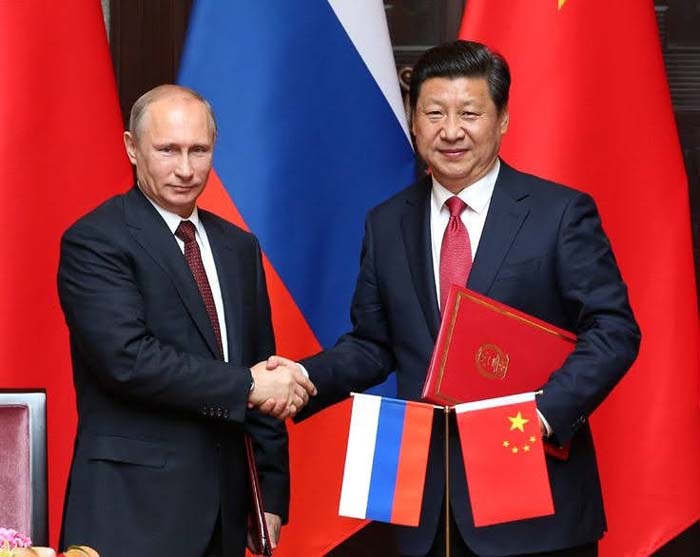
China, Russia won’t part ways, but will continue to meet challenges cooperatively
Global Times
Ukrainian media outlet Obozrevatel published an article arguing China is “not happy with” Russia-led troops arriving in Kazakhstan and has been “hiding its irritation.” Despite how astonishing such rhetoric is, the article went on to say China has a strong tool to make Russians leave Kazakhstan – refusing Russian athletes to participate in the upcoming Winter Olympic Games.
The argument echoes some US analysts, such as Tony Nash, CEO of Houston-based AI platform Complete Intelligence, who on Friday tweeted, “I wonder if Kazakhstan could be where Russia and China start to part ways.”
The argument is inconceivable. Kazakhstan has been maintaining good ties with both China and Russia, and a stable situation there is something both Beijing and Moscow are happy to see.
Chinese State Councilor and Foreign Minister Wang Yi made clear the stance of the Chinese side during a call with Kazakhstan’s Foreign Minister Mukhtar Tileuberdi on Monday. Wang said that recent turmoil in Kazakhstan shows the situation in Central Asia is still facing severe challenges, and once again proves that some external forces do not want peace and tranquility in the region. Wang went on to say that China was willing to jointly oppose interference and infiltration of any external forces.
Chinese Foreign Ministry spokesperson Wang Wenbin expressed a similar attitude last week, “China supports all efforts that will help the Kazakh authorities to restore calm as soon as possible and firmly opposes the acts by external forces to deliberately create social instability and instigate violence in Kazakhstan.”
Given Ukraine’s past contradictions with Russia, some Ukrainians are taking advantage of the chaos in Kazakhstan, trying to play China and Russia off against each other. Westerners are even more eager to see China and Russia “part ways.”
But in terms of the situation in Kazakhstan, and the larger region – Central Asia, the common interests between China and Russia surely outweigh their divergences.
For Russia, Kazakhstan is not only a member of the Commonwealth of Independent States, but also a member of the Eurasian Economic Union and the Collective Security Treaty Organization. For China, Kazakhstan is not only a member of the Shanghai Cooperation Organization, but also a crucial part of the China-proposed Belt and Road Initiative (BRI). Be it promoting regional economic and trade cooperation, preventing Western forces from infiltrating or stopping the “three evils,” namely terrorism, separatism and extremism, China and Russia have a large range of common interests and consensus in the region.
The US has been establishing or funding tens of thousands of nongovernmental organizations (NGOs) in Kazakhstan. An important reason is that Kazakhstan is located between China and Russia, the two main US competitors. As Kazakhstan is a relatively newly independent country, the US believes its forces can help develop US influence quickly there.
Kazakhstan’s recent unrest is unanticipated. It was a very stable country. The reasons behind the turbulence are complicated, and domestic contradictions are likely to be the main reason. However, we can notice the role of Western NGOs as well.
When Western media outlets cover the situation, they like to hype that Russia is consolidating its so-called sphere of influence and they accuse Russia of sending troops into Kazakhstan.
However, the Russian military was deployed together with the CSTO Collective Peacekeeping Forces, following the principles of the CSTO and the request of Kazakh President Kassym-Jomart Tokayev. There is nothing wrong with Russia’s act.
The Western accusations don’t hold any legal ground.
Kazakhstan will trend toward stability in the future. In addition to regional security issues, anti-terrorism and stopping the “three evils,” both China and Russia can play a large and positive role in Kazakhstan’s reconstruction after this turbulence.
The security of neighboring countries, especially the security along the BRI routes, is a part of China’s overall security. This is also the case for Russia.
In terms of the Ukraine issue, the dispute between Russia and NATO has already been fierce. Likewise, the tension in the Taiwan Straits has never eased. There is still a lot of room for China and Russia to continue to meet regional security challenges cooperatively.
The article was compiled by Global Times reporter based on an interview with Li Xing, a professor of international relations at Beijing Normal University.
